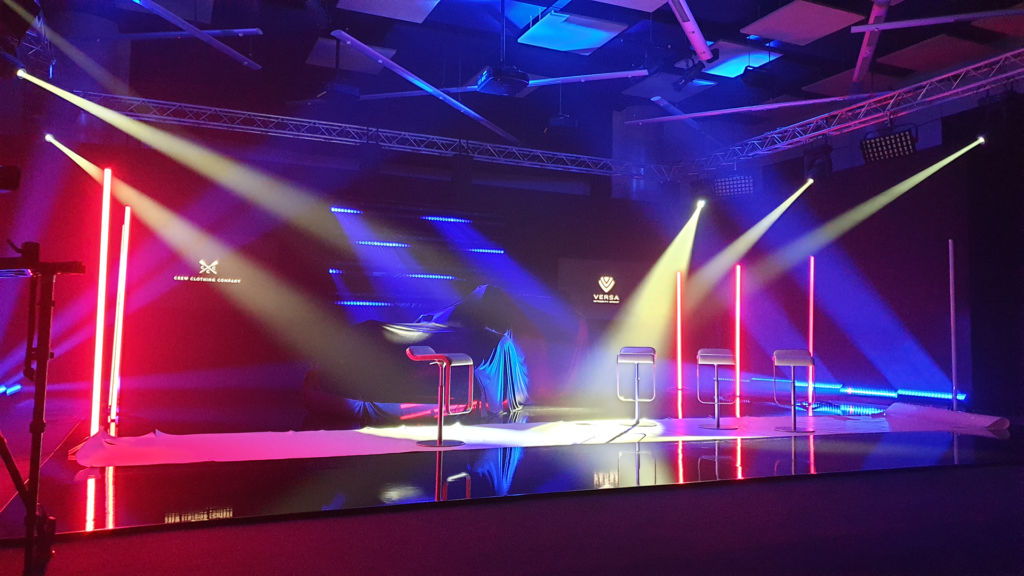Recognizing the Relevance of Events Administration in the Production Sector
The significance of occasions management within the manufacturing industry can not be overemphasized, as it serves as an essential element in connecting the space in between creative vision and effective implementation. By stressing logistical control, spending plan adherence, and stakeholder interaction, effective events can raise brand name engagement and functional effectiveness.
Role of Events Monitoring
Events monitoring plays a crucial function in the production industry, acting as the bridge between innovative concepts and substantial end results. It encompasses a vast array of obligations, including preparation, carrying out, and reviewing different events, which are essential for showcasing manufacturings, engaging audiences, and fostering cooperation amongst stakeholders.
Among the critical functions of occasions monitoring is logistical coordination. This involves protecting locations, setting up equipment, and taking care of timelines to ensure that every information aligns with the overarching vision of the production. In addition, occasions managers are entrusted with budgeting and resource allocation, which requires an eager understanding of economic constraints and the capacity to maximize value.
Furthermore, reliable interaction and stakeholder management are important elements of occasions management. Specialists in this area should communicate with a diverse collection of individuals, including musicians, enrollers, and suppliers, to produce a cohesive experience. They likewise play an important function in advertising and marketing and promo, utilizing different channels to produce passion and attendance.

Benefits for Manufacturing Companies
An efficient occasions administration technique can produce considerable benefits for production firms, improving their general functional performance and market presence. By improving the preparation and execution of events, manufacturing firms can designate resources better, lowering prices connected with mismanagement or final changes. This effectiveness not only conserves cash however also enables teams to concentrate on their core competencies, ultimately resulting in higher-quality results.
Furthermore, well-executed events can offer as powerful advertising and marketing devices, enhancing brand presence and fostering more powerful connections with customers, stakeholders, and the general public. Involving occasions produce opportunities for networking and collaboration, which can lead to brand-new collaborations or jobs that enhance a firm's reach within the sector.
In addition, events can offer useful understandings with target market feedback and involvement metrics, making it possible for manufacturing firms to fine-tune their strategies and offerings. This data-driven technique can result in more targeted advertising and marketing initiatives and boosted customer complete satisfaction.
Crucial Element of Effective Occasions
Successful occasions depend upon a number of vital components that add to their general influence and performance. Clear purposes are crucial; comprehending the purpose of the occasion allows for focused planning and implementation. This involves identifying the target audience and tailoring the occasion's content and tasks to satisfy their needs.
In addition, careful preparation is crucial. This includes developing a thorough timeline, designating functions and duties, and taking care of spending plans properly. Interest to logistics, such as place choice, devices services, and providing services, can not be ignored, as they straight influence the occasion's success.
One more vital element works communication. This incorporates not just interior sychronisation among staff member however also exterior messaging to stakeholders and attendees, making sure every person is notified and engaged.
Challenges in Occasion Sychronisation
Coordinating an occasion provides an one-of-a-kind set of challenges that can impact its overall success. One of the most substantial difficulties is taking care of time effectively. Events typically have tight routines, and any delay can lead to a cascading effect on subsequent tasks, diminishing the experience for attendees. In addition, logistical complexities such as location selection, transport, and equipment rentals call for careful preparation and control.

Spending plan restraints additionally present a substantial challenge. Event organizers should navigate monetary constraints while striving to meet the expectations of stakeholders, which often requires imaginative remedies to take full advantage of sources. Stakeholder administration can be specifically detailed, as differing rate of interests basics amongst enrollers, vendors, and customers must be integrated to attain a cohesive vision.

Future Fads in Events Monitoring
Progressively, the events administration market is accepting technical advancements that are reshaping the way occasions are intended and implemented. One considerable trend is the increase of online and hybrid events, which use higher ease of access and adaptability for participants (production companies in charlotte nc). This change enables coordinators to reach larger audiences while decreasing logistical expenses related to typical in-person celebrations
An additional trend is the combination of data her latest blog analytics devices to boost occasion experiences. By collecting and evaluating attendee data, occasion managers can tailor experiences to better meet audience choices and improve involvement. This data-driven approach not only enhances participant complete satisfaction yet also offers important understandings for future events.
Sustainability is likewise becoming a prime focus in occasions administration, with business focusing on green methods such as decreasing waste and carbon footprints. This pattern aligns with wider social shifts towards ecological consciousness, attracting a market increasingly worried concerning sustainability.
Lastly, the use of immersive technologies, such as augmented reality (AR) and virtual reality (VIRTUAL REALITY), is established to revolutionize event experiences, developing interesting and interactive atmospheres that leave long lasting impressions on attendees. As these fads continue to evolve, they will undoubtedly form the future landscape of occasions monitoring in the production market.
Verdict
Finally, reliable events administration is necessary for the production market, connecting the space in between creative ideas and their implementation. By improving logistical coordination, enhancing resource allowance, and promoting stakeholder communication, occasions administration contributes significantly to operational performance and audience engagement. Addressing the difficulties of coordination while adapting to future trends will certainly further strengthen its function in driving successful end results and boosting customer satisfaction. Eventually, a calculated strategy to occasions administration is important for sustained industry development.